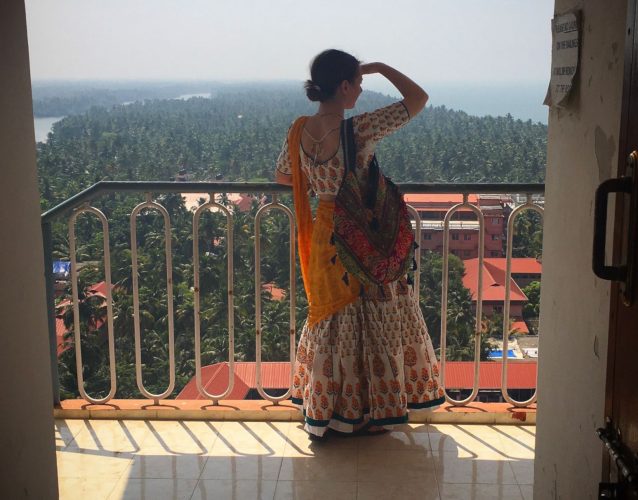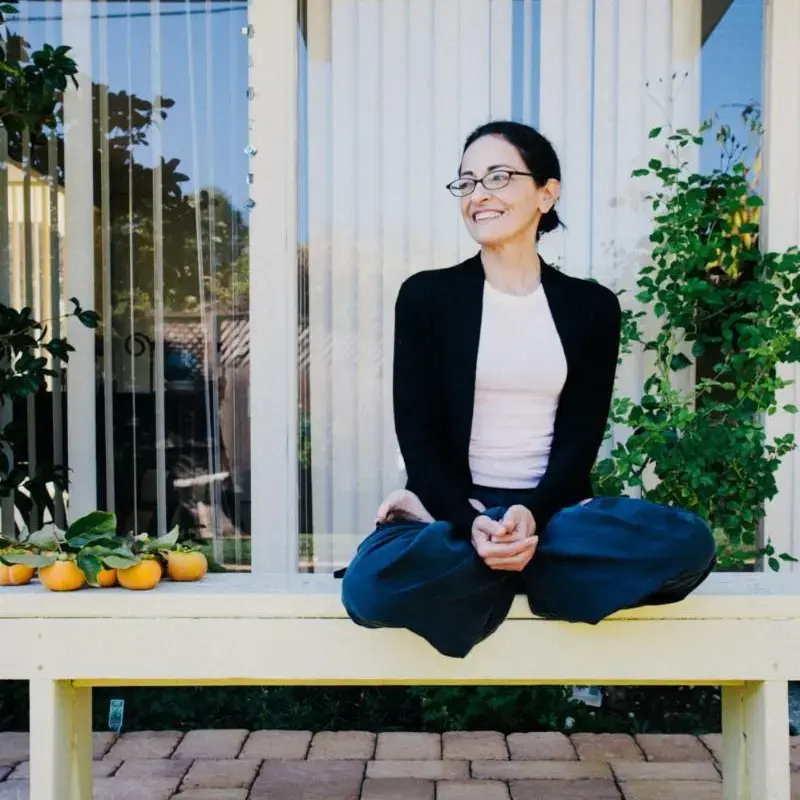If you’ve had the opportunity to explore other countries and cultures, you may have come to appreciate the profound shift in perspective that often comes with spending time in an unfamiliar place. Travel to faraway lands can open our hearts and minds, and expose us to new ways of thinking and acting. The transformative nature of traveling often ignites a wanderlust that has us always looking toward the next horizon.
Whether for work or pleasure, it is a privilege to travel. Ironically, many popular tourist destinations are places where the average local will never have the resources to journey to a distant land. The majority of humans on this earth continue to live in poverty, and impoverished countries continue to be favorite destinations. Tourism leaves an undeniable social and environmental impact on the earth and its people. So, how can we who wander do so with care and sensitivity to that impact? Here is a helpful guide for the aspiring ethical traveler.
Reduce Air Travel & Offset Carbon Emissions
Air travel is one of the most troubling contributors to climate change, and the industry is rapidly growing as demands for work-related travel, fast shipping, and tourism increase. If you fly often, it’s likely that this is your number one source of greenhouse gas emissions.
- When possible, skip the flight and travel by train, bus, or carpool.
- Book nonstop flights; the majority of emissions occur during takeoff and landing.
- Travel light, and fly coach. Heavy bags and heavy first class seats burn more fuel.
- Buy carbon offsets which go toward things like tree planting, sequestration projects, and investing in renewable energy.
Eliminate, Reduce, or Pack Out Plastics
Many countries do not have the infrastructure to recycle the huge amounts of plastic involved in tourism. Water bottles, snack foods, and those cute, travel-sized beauty products generate a lot of packaging for a small amount of product, and usually end up in landfills. Often, these and other non-compostable trash items are burned, as there is no other means of disposal. These trash fires are a major contributor to air pollution and respiratory illnesses.
- Fill reusable bottles with your favorite products from home.
- Bring reusable bags of varying sizes for snacks, shopping, etc.
- Collect the plastics you use and bring them home to recycle.
- Skip the straw, or carry a reusable one.
- Use a portable water filter and reusable bottle. These are great for filtering tap water, but you can also use them to filter water from rivers, waterfalls, and lakes when you’re out in nature!
Protect Water and Its Creatures
Water treatment facilities simply don’t exist in many places in the world. Often, chemicals, detergents, dyes, and fragrances we use to wash our bodies, clothes, and dwellings end up flowing directly into local rivers, lakes, oceans, and marshes. This can be detrimental to both local wildlife and the people who depend on those water sources.
- Use biodegradable beauty products, soaps, and insect repellants.
- Have hotel bedding changed weekly instead of daily.
- Certain sunscreen ingredients can be particularly damaging to coral reefs. Coral (an animal, not a plant!) is an important habitat for ocean life, and is seriously endangered. If you plan to swim, use a reef-safe sunscreen and don’t touch the coral.
Be a Friend to Animals
From swimming with dolphins, to riding elephants, animal entertainment is a big part of the world-wide tourism industry. Unfortunately, it is all-too common for animals to be exploited and abused in providing such entertainment, and it’s not always easy to tell which companies are getting it right.
- Feeding wild animals can disrupt their natural foraging, hunting, and scavenging habits. Enjoy them from a distance!
- Tigers, lions, and other large animals are often sedated so that tourists can pet them or pose for a photo with them. Often, the same companies breed large cats and sell those not destined for encounters for “canned hunting.” Ethical animal encounters do exist, but you’ll have to do your homework.
- Elephants, camels, and horses are often treated poorly and overworked.
- Souvenirs made from animal parts (including leather) are often obtained in cruel ways.
Understand Social Impact
It’s not just the tourist whose life is changed by travel. Foreign influence impacts social values and customs, often to the detriment of a culture. Before you travel to a place, learn about its people, and consider how you might live in harmony with their culture during your visit.
- Dress appropriately. Some countries have a different idea of what modesty looks like, and, in some places, it’s common to dress a bit more formal than you may be used to. Plan accordingly.
- Learn and go along with local customs. Eat with your hands, travel by tuk-tuk (auto rickshaw), use a squat toilet, take a bucket bath. If you insist on recreating your home life abroad, travel can be stressful for both you and your hosts. If you have a lot of specific needs for your health or comfort, consider traveling to places where those needs can easily be met.
- Learn at least a handful of useful phrases in the local language.
- Don’t just associate with expats and other tourists; get to know local people and build lasting, meaningful relationships with them.
Photography
- Ask permission when taking photos. Consent is a beautiful thing. A conversation around why you’d like to take someone’s picture can lead to a meaningful connection, a new friend, or an important learning. Sometimes, great photos happen spontaneously, but, you can still invite consent by showing them the photo and asking if it’s ok to share it.
- Poverty is not a prop. Don’t use poor people, their living or work spaces, and especially their children, as a background or prop. Photos depicting scenes that we find shocking, strange, or troubling can perpetuate harmful stereotypes and give people back home the wrong impression of a country. They can also inappropriately flaunt our wealth and privilege. Instead, share photos that show something or someone that genuinely interests you, like an artisan working at their craft or a portrait of a person who inspired you.
Conscious Commerce
- It’s true that locals often pay less for certain goods and services, but if you are coming from a much wealthier country, consider toning down the bartering. The extra coin might mean a lot more to the seller than it does to you. Supporting local, ethical businesses is great, and a little bartering can be friendly and fun, but there’s no need to nickel and dime them.
- Many businesses, such as guided tours, snorkel excursions, and safaris, are owned by outside investors who pay their employees poorly and keep most of the profits. Do your research.
- Respect the intended purpose of the experiences you seek and things you buy. Cultural voyeurism, objectifying, and consuming cultural practices and symbols for our own enjoyment, with no benefit (and often harm to) that culture, is rooted in privilege and unconscious bias. Do not enter sacred and ceremonial spaces without invitation and due reverence. If you buy sacred iconography or tools of sacred practice, learn of their purpose and plan to use them accordingly instead of treating them as simple, “exotic” decor.
Make a Positive Impact
- Voluntourism often operates under the illusion of service work and can appeal to a kind of savior mentality that is rooted in colonial violence. It’s not our job to impose our standard of living wherever we go, and, sometimes, our well-intentioned efforts end up doing more harm than good. Instead, we can coordinate with reputable local organizations and ask the all-important question, “How can I help?”
- Instead of giving money to street children (which perpetuates the cycle of poverty and exploitation), research aid organizations before you travel and make a donation.
Donate blood! In many developing countries, there is not enough to meet the need, and misconceptions about the safety of donating persist. It doesn’t take long, and it could literally save a life.

















2 replies on “8 Ways To Travel More Ethically”
[…] Flowers for Feng Shui by Jen Walthers, and share your thoughts in the comments section. Read 8 Ways to Travel More Ethically by Prajna Vieira, and share your thoughts in the comments section. Start your day with the […]
Amritapuri?